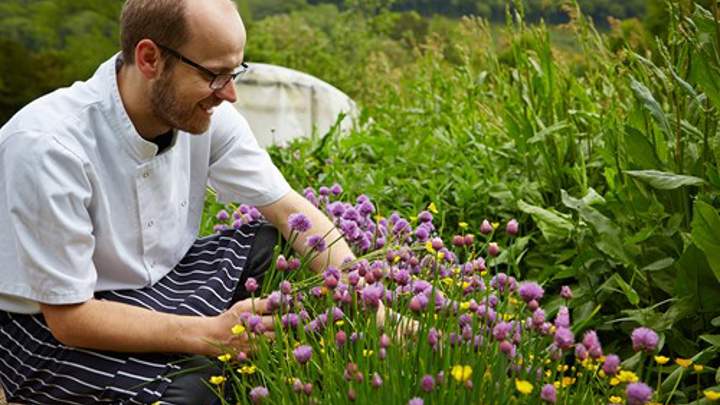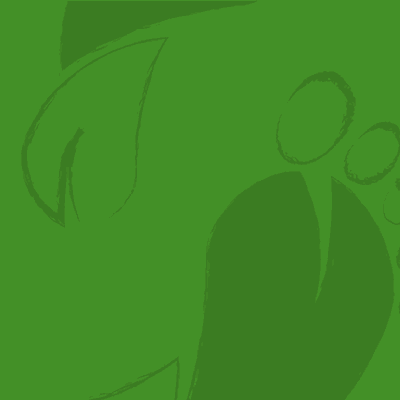
The Riverside at Aymestrey
Andy Link worked at this hotel and restaurant near Leominster for over 20 years, as a pot washer and then as a chef. But he’d grown up on a farm in the county, had an understanding of the value of the environment running through his veins and, in between those various jobs had studied business at university. So, eight years ago, when the owners of The Riverside retired, he took it over - and took it in a new sustainable direction. We caught up with him at his restaurant.
We have a growth plan and sustainability plan running in parallel. They support each other. They’ve led to initiatives like two acres of kitchen garden, bee hives, a small orchard and hedging plants – pretty much all native species that support wildlife. We now have hedgehog houses and bird boxes in our grounds. Sustainability has become the priority in our planning. When we renovated the toilets, we went for water free options. And, of course, we see the impact of that, for nature and for us. Reducing waste has saved us around 5k a year. Reducing energy had an impact on the bottom line. I am now a great believer that sustainability and environmental practices should be core to a business and a factor in all decision making. This can’t be a token afterthought. In fact, it should be the first discussion. It leads to staff engagement and they spread the message to customers who spread it to others in the wider world.
We’ve been inspired by what we are learning. I became heavily involved in the Slow Food Ludlow Marches organization [part of a UK network promoting the Slow Food ethos] and we went out to Turin, Italy, and saw how many businesses are doing astonishing things in this arena, doing good for business and the environment without gimmicks. Now our long term plan is to be nationally and internationally recognised as a place that leads by example. If we can showcase the way we work – from how we grow through to how we compost, we can demonstrate what can be done in other sectors too.
We joined Greener Footprints Business Network to learn. We had a challenging few years post Covid, the pandemic impacting on staffing and costs. Everyone in hospitality was hit. So, as we developed strategies to come back more sustainable, we want to access as much information as possible, to be part of a county-wide group that is sharing ideas and data. Businesses of all sizes at different stages of the journey working across sectors are a great resource to tap into. When you are in one industry you can become focused on what it is doing and so miss opportunities. Someone in a different industry may have a radically different solution for a problem you are facing, so it’s a great resource to tap into.
Ideas to share? One of our big developments – launched last year – is a carbon zero donation fund which is supported by guest donations. We’ve raised 15k so far which we can use to support initiatives in the county. For example we’ve donated 5k of it to Herefordshire Wildlife Trust who are building a nature reserve purely from this funding.
What people often forget? Businesses can be a route to market for a host of suppliers, showcasing what is possible to our customers and spreading the word. We think business to consumer communication is the best way to champion sustainability in rural areas, educating communities about the best of sustainable practices. There are a lot of top-down policies in this arena, but unless consumer attitudes shift and they start to seek out and support sustainable products and services we won’t see companies change, and we’ll never make enough of a difference.

